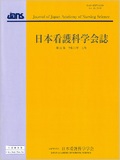Japanese
English
- 販売していません
- Abstract 文献概要
- 参考文献 Reference
- サイト内被引用 Cited by
要旨
看護学における一事例研究の利点は,意味ある成果からの遡及推論により焦点化した検証が出来ること,看護実践の背景を描くことが出来て場面に応じた具体的実践のヒントを示せること,物語性によって読者を触発できることである.
これらの利点は,一回性の実践によって産み出された看護実践の妙技に含まれるフロネーシス(実践知)を顕在化させるのに役立つ.近代的科学観においては「観察や実験など経験的方法に基づいて実証された法則的知識」を重視している.一方,看護は対象の個別的ニーズに対応する特徴を持っており,実践において科学的知識を基盤としながらも,即興的・偶発的に個別に対応しつつ,フロネーシスを生みだしている.「理論と実践の実りある関係」を形成するためには,フロネーシスを掬い取り,蓄積していく取り組みが必要であり,一事例研究は,それに貢献できると考える.
Single-case research in nursing science has a number of benefits. First, it can provide a focused verification by retroactive reasoning from the time point when a good outcome is confirmed. In addition, it can provide hints regarding nursing practice according to situation, by describing the background of actual nursing. Finally, it can evoke the emotions of readers through narratives that describe a course of events.
These benefits help to bring to light the phronesis (practical wisdom) that is contained in the nursing prowess generated through one-time practice. Modern science places an emphasis on “nomothetic knowledge demonstrated based on empirical methods such as observation and experiments.” However, nursing requires responses to individual needs, and although it is based on scientific knowledge in practice, it creates “phronesis” through improvisatory and incidental responses. In order to build a “fruitful relationship between theory and practice,” it is necessary to retain and accumulate phronesis, and I believe that single-case research can contribute to this process.
Copyright © 2021, Japan Academy of Nursing Science. All rights reserved.


